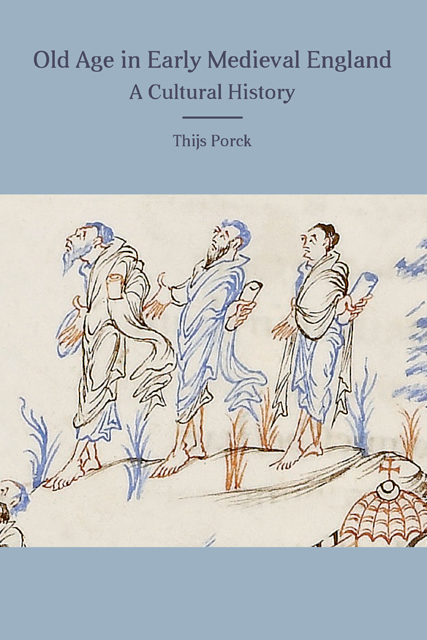Book contents
- Frontmatter
- Contents
- Illustrations
- Acknowledgements
- Abbreviations
- Introduction
- 1 Definitions of Old Age
- 2 Merits of Old Age
- 3 Drawbacks of Old Age
- 4 frode fyrnwitan: Old Saints in Anglo-Saxon Hagiography
- 5 hare hilderincas: Old Warriors in Anglo-Saxon England
- 6 ealde eðelweardas: Beowulf as a Mirror of Elderly Kings
- 7 gamole geomeowlan: Old Women in Anglo-Saxon England
- Conclusion
- Bibliography
- Index
- Anglo-Saxon Studies
Conclusion
Published online by Cambridge University Press: 17 January 2023
- Frontmatter
- Contents
- Illustrations
- Acknowledgements
- Abbreviations
- Introduction
- 1 Definitions of Old Age
- 2 Merits of Old Age
- 3 Drawbacks of Old Age
- 4 frode fyrnwitan: Old Saints in Anglo-Saxon Hagiography
- 5 hare hilderincas: Old Warriors in Anglo-Saxon England
- 6 ealde eðelweardas: Beowulf as a Mirror of Elderly Kings
- 7 gamole geomeowlan: Old Women in Anglo-Saxon England
- Conclusion
- Bibliography
- Index
- Anglo-Saxon Studies
Summary
This book comprises a detailed study of the Anglo-Saxon cultural conceptualisation of old age as manifested and reflected by texts and artwork of the inhabitants of early medieval England. A synthesis of the most noteworthy results of the investigation is provided below. The remainder of the conclusion then proposes some areas for future research.
This book started with the question of how the Anglo-Saxons themselves defined old age in relation to other stages of life. Chapter 1 drew on more than twenty-five different schematisations of the life cycle, most of which had been overlooked in the previous overviews. It appeared that Anglo-Saxon scholars and artists typically broke up the human lifespan into three parts: childhood, middle age and old age. Each element of this underlying tripartite structure allowed for further subdivisions, resulting in schemes of four, five or even six ages of man. Each of these schematisations was connected with concepts from the fields of early Christian learning, such as the Three Magi and the Six Ages of the World, or of natural philosophy, such as the four bodily humours. Significantly, old age was only rarely subdivided, contrary to what has been argued for the early Middle Ages as a whole. Rather than distinguishing between a ‘green’ and a ‘grey’ old age, Anglo-Saxon authors generally framed old age as a single phase that started around the age of fifty.
As shown in chapters 2 and 3, Anglo-Saxon poets and homilists approached senescence with mixed feelings. On the one hand, growing old was associated with the accumulation of wisdom and respect; on the other, Anglo-Saxon writings demonstrate an awareness of the social, mental and physical drawbacks of age. The cultural conceptualisation of the merits of senescence is reflected in Old English words such as frōd, ‘old and wise’, the role of elderly narrators as venerable advisors in poems such as Precepts, and the homiletic appeal to the old to exhibit clearly their spiritual superiority. This correlation between old age and wisdom, respect and piety, however, was not entirely unambiguous. Anglo-Saxon homilists in particular worried about ungodly elderly and deemed it necessary to remind the aged of their impending death, impelling them to part from their foolish ways if they had not done so already.
- Type
- Chapter
- Information
- Old Age in Early Medieval EnglandA Cultural History, pp. 232 - 236Publisher: Boydell & BrewerPrint publication year: 2019



